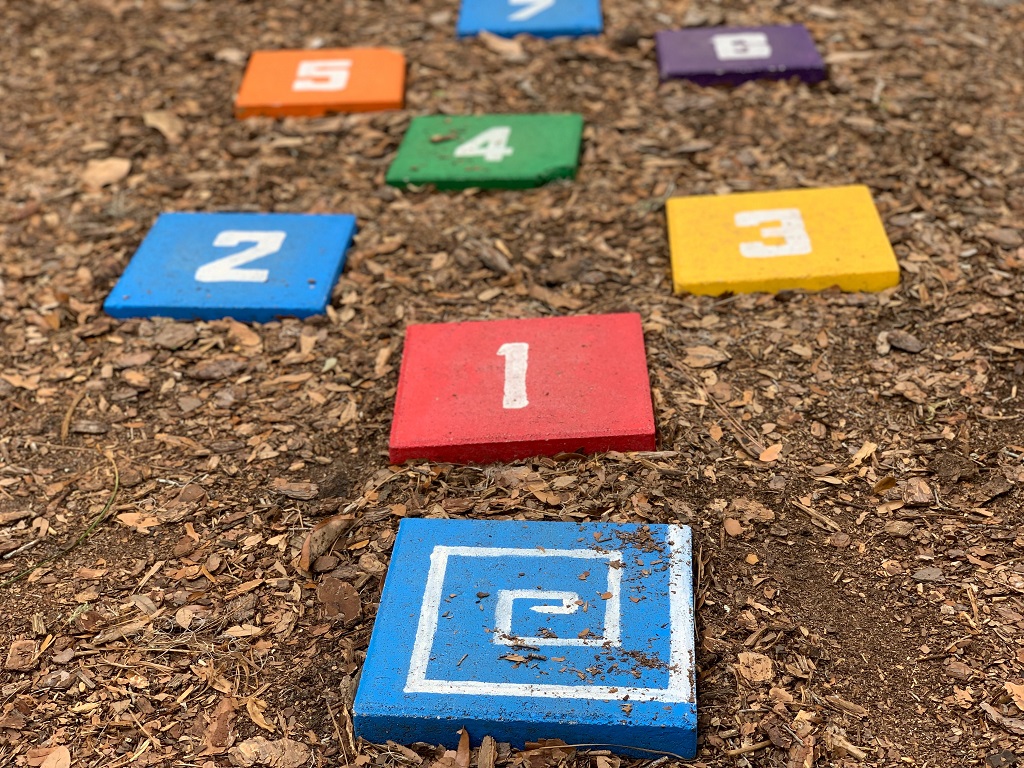
It’s unimaginable sometimes how toddlers bounce around from activity to activity, as we struggle to match their never-ending supply of energy. There are times when it can be challenging to find activities to keep them engaged and stimulated each day. Grab the daily toddler activity schedule, find it in my free printables library, for a peek into what an average toddler day. Also, download you’re your personalizable schedule.
Birth to three years is considered the most critical years of a child’s development. As your child grows, you may hear the phrases ‘developmental stages’ thrown around, and this means your child is moving through a certain period while growing and will perform activities appropriate for that period.
As your child grows, its good to know what activities are expected for them at each phase. While children achieve milestones at different times, it’s good to take note of their developmental achievements. If your child were to reach an expected milestone later than is expected, that might be a cue to you a parent to have your child assessed by a pediatrician to determine if there is cause for concern. Its good to be safe with kids and seek professional advice when there is doubt.
Having a routine and an established schedule can leave you a more organized and sane parent and your child a happier and stimulated toddler. Using a daily schedule will help you to know whether your toddler is making progress in speech and language, fine and gross motor skills, social and emotional intelligence. You’d be surprised to see how you can engage your toddler in simple activities to develop and nurture these key areas.
There are times when Ryan and I are beside ourselves when it comes to keeping Rossi entertained, but we have found that using a schedule and maintaining a routine helps us and Rossi alike. Rossi looks forward to breakfast, reading a book, building blocks or puzzles, playing in the dirt, playing with his friends, and riding his bicycle every day like clockwork.
Here are some simple everyday activities that can help with getting your child up to speed; some of the activities we do every day without thinking about their benefits. This blog post will help you to see how some of these activities can help your child’s development. Let’s get into it.
Singing
You can communicate with your toddler through songs, and the benefits are far-reaching. No, you don’t have to be a great singer to do this. Singing helps your toddler to develop their vocabulary through the pronunciation of words and word combinations.
Ever stop to wonder how your child could memorize the alphabet so early, singing helps with memorization. I have been singing to Rossi since the day he was born, and I have used it as a means of communication. I’d sing him a lullaby for bed, sing whenever he was upset, during play, and sing whenever we were performing a task—for example, brushing his teeth. Rossi understands how different tone communicates different messages. Singing has undoubtedly been a mood lifter for us.
Reading
If you missed reading to your child from utero or birth, it’s never too late to start. Reading has a similar benefit for your child as does singing, it helps, with building their vocabulary, phonics, pronunciation, and is one of the best ways to hear their native language. If you want to avoid preschool reading woes in your child, it may be beneficial to start reading them a story early.
Reading develops your child’s imagination and is a special bonding time between you and your child. How should you read to your child?
- Routinely, develop a habit of reading for your child, so they become accustomed and will want to read on their own.
- Read at a pace slow enough for your child to understand the story.
- Read with emphasis and expression, using different voices for different characters.
- Perform actions to help convey the meaning of the story.
- Ask your child open-ended questions about the story to keep your child engage. Why do you think the dog went down to the lake?
- Make reading enjoyable for your child by showing them that it is.
You might be saying; it’s hard reading to a toddler who never sits still. Keep in mind how short their attention span is, but reading helps to increase concentration. Also, sitting still is not required for you to read them a story, be creative.
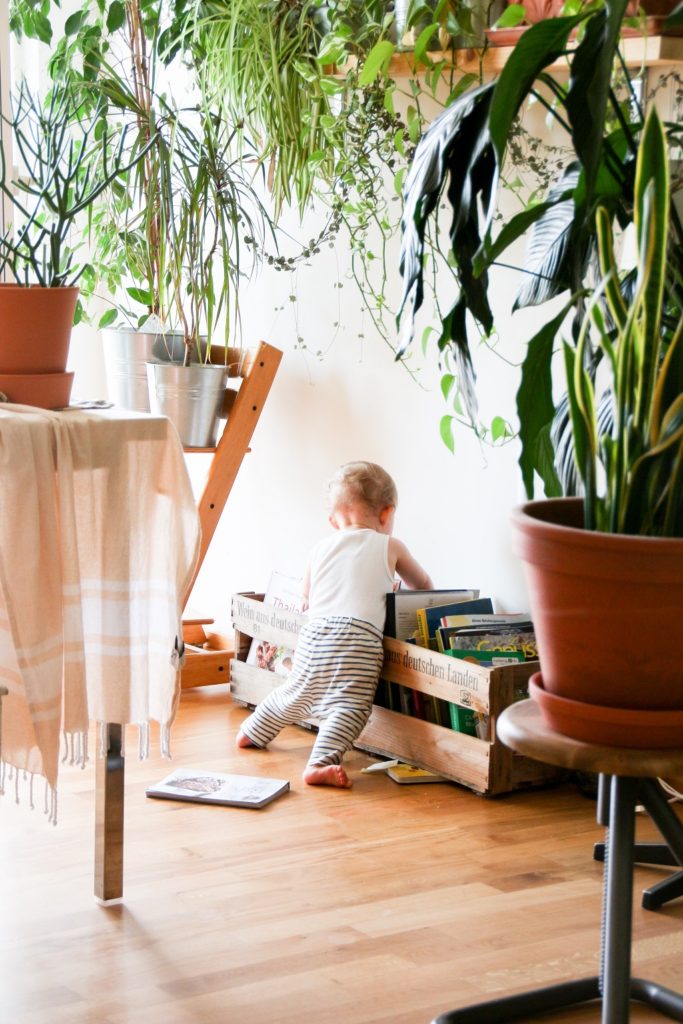
Art
Art is a great way to get your child to express themselves through free play while developing crucial skills. Here are some of the benefits of craft for your child:
- Develop their fine motor skills: Fine motor skills are controlled movements that require your child’s concentration and them to be calm to perform these tasks. Examples of fine motor activities are grasping pencils, crayons, chalk, or paintbrush.
- Cognitive development: let’s not take children for granted; for your child to create a piece of art, they must make a mental plan and follow that plan. Art helps your child to learn cause and effect; for example, they will know that by mixing two colors, they’ll achieve another.
- Language skills: Allowing your child to describe their artwork helps them to be expressive.
- Creativity: Allow your child to explore and be creative, provide your child with a paintbrush, paint, crayons, scissors, glue, paper, and play dough to create their masterpiece. You only need to be a support in this process, let them lead.
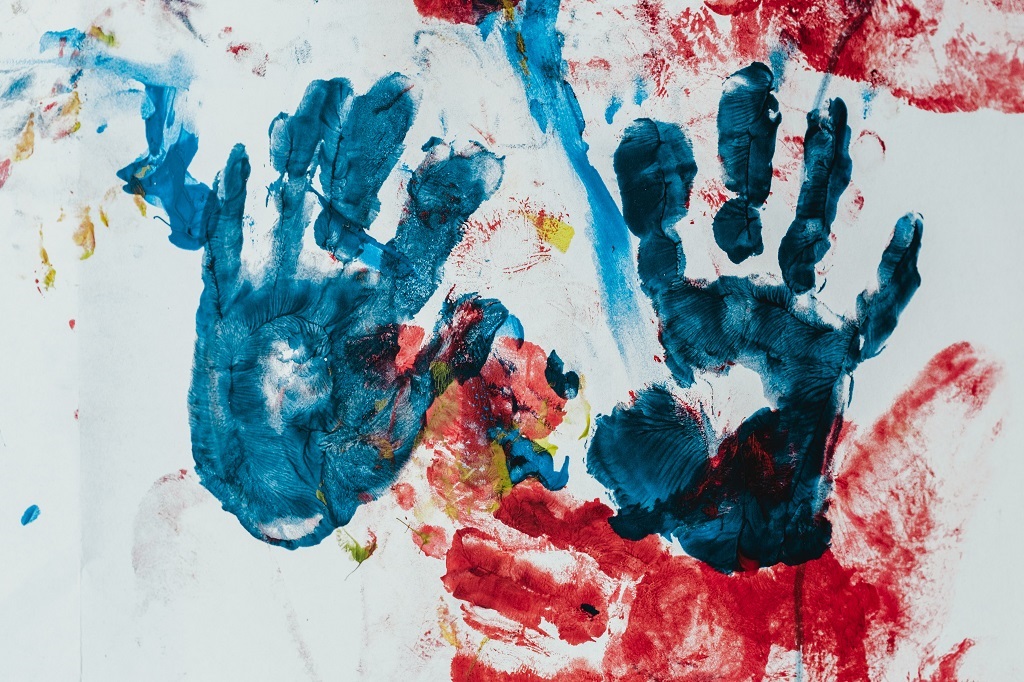
Outdoor Play
Did you know your child gets mental and physical benefits from outdoor play? Yup! That’s right. Exposure to sunlight reduces the risk of vitamin D deficiencies and outdoor activities wards off childhood obesity.
Outdoor play gets your toddler inadvertently involved in aerobic exercises in the form of running, jumping, and skipping. Which toddler does not enjoy the outdoors? The outdoors will strengthen their immune system and make them happier.
The outdoors is perfect for free play, and your child will develop social and emotional intelligence from their interaction with siblings and playmates. These interactions teach them how to communicate, organize, and cooperate and share.
Your child also gets the opportunity to exercise their innate curiosity with outdoor play. Find your child exploring nature and learning the vast outdoors. They also learn to exercise independence, from directing their play.
It’s also the ideal place for them to develop gross motor skills. Gross motor skills require the whole body to move and are functions toddlers perform daily like walking, running, jumping, throwing, and riding a bike. These skills are essential for self-care tasks later on, like balancing on one leg to put on a pair of pants.

Sensory Play
Sensory play is as it says; it engages all your toddler’s senses and is the perfect way for them to explore the world around them. Some benefits of sensory play are:
- It helps to improve your child’s memory function, it teaches them about textures, and so they’ll remember what’s soft and what’s hard.
- It also helps them to ascribe appropriately sensory attributes, for example, hot, cold, slippery, and wet.
- Sensory play gives your child practice with fine motor skills such as pinching and pouring.
Just about everything around the house can be used for sensory play, rice, bubbles at bath time, ice, cooked spaghetti, and cotton balls are some examples.
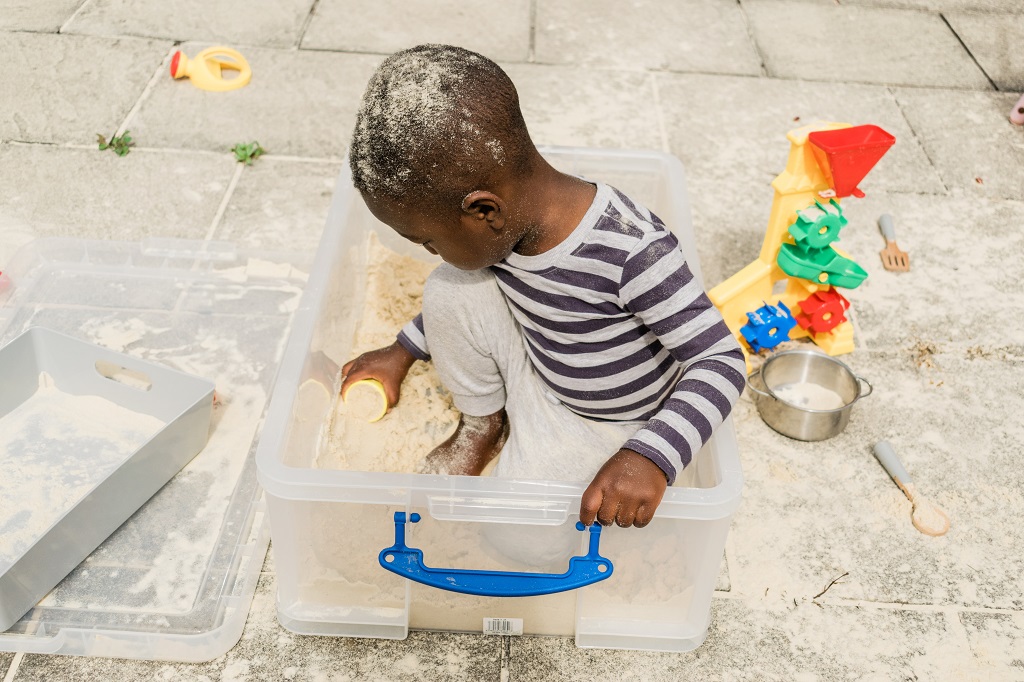
Chores
Your child will reap long-life benefits from doing chores, children who do chores have a higher self- esteem, are more responsible, have greater success in school, work, and relationships. One of the most important benefits for your child is that they learn independence. Teach your child to do simple age-appropriate tasks, like packing away toys after playing, putting their used cup in the kitchen sink, putting their clothes in the laundry basket and sort socks.
Solitary Play
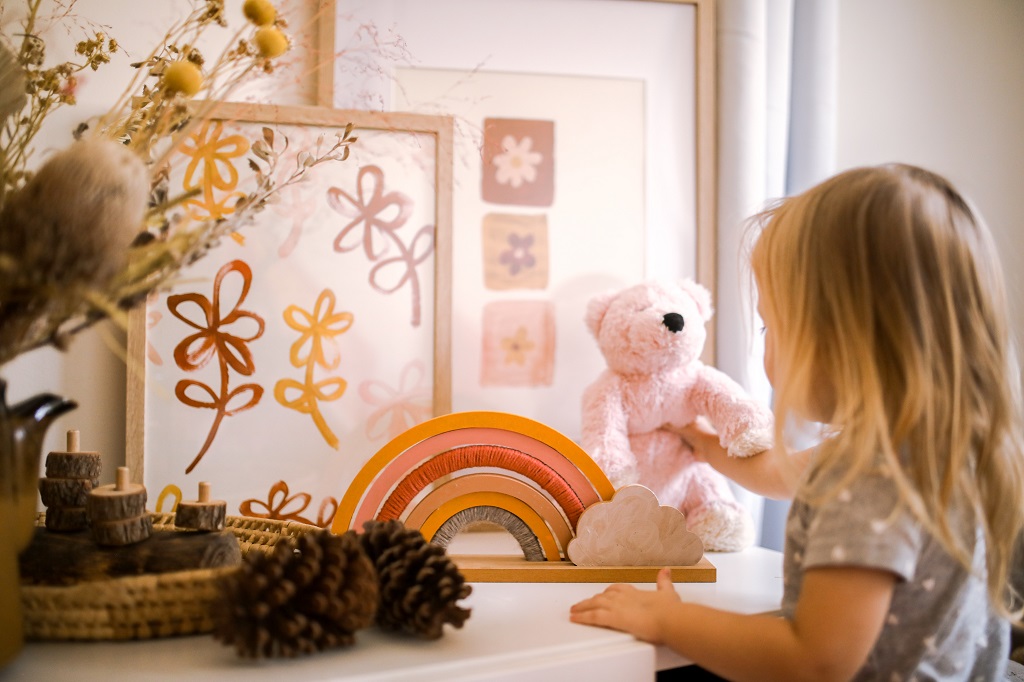
Solitary play will bring out your child’s natural creativity and helps develop their imagination. Children who play alone learn to enjoy their own company rather than depend on others. You may think your child always needs a playmate, but give your child some alone time with a toy, and they will entertain themselves.
Chess
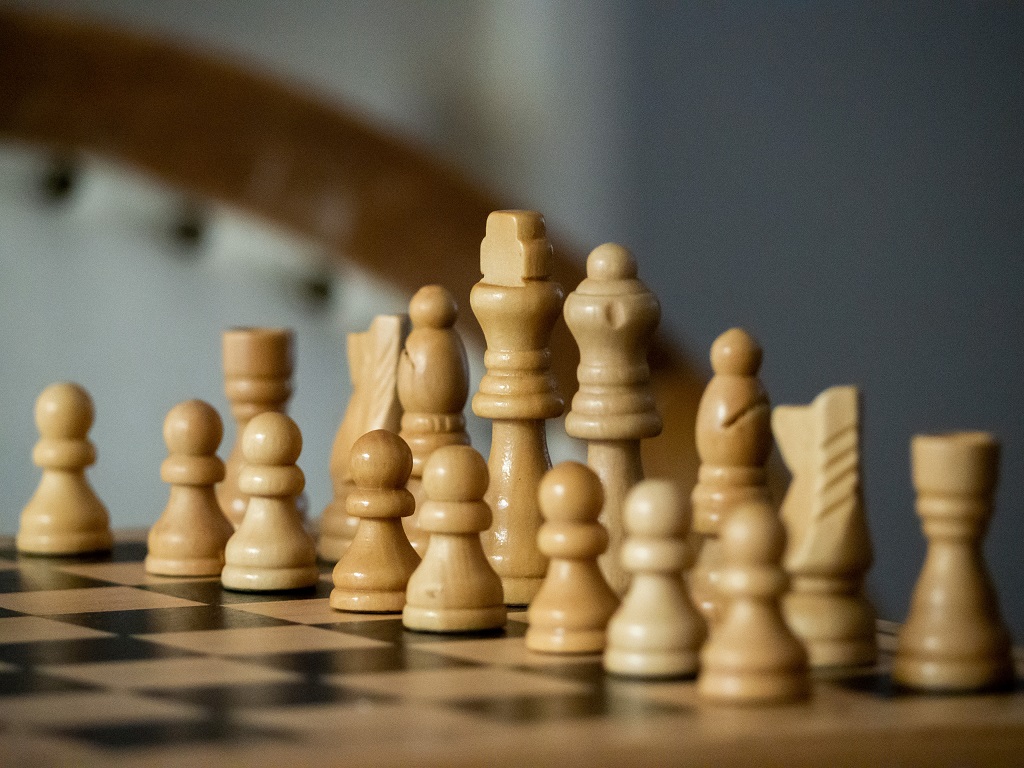
This last activity is an all-time favorite, and we take particular interest in the game since we operate a Chess club. Children as early as three can start learning to play chess, there are chess clubs in schools and in the communities to facilitate that. Chesskid.com is a website just for children with tons of resources and lessons about chess. Chess is a game of strategy, problem-solving, and analysis. Let’s talk a bit more about how your child can benefit from playing chess.
- Chess exercises the mind; it increases attention span, concentration, and memory.
- It teaches children to analyze situations and come up with solutions; all of this is done visually by watching the game and observing chess pieces on the board.
- Chess is a rewarder of hard work, practice, practice, and win more games, learn tactics and strategies.
- Playing chess helps to prevent brain deterioration and may also ward off conditions like Alzheimer’s Disease.
These are some activities that we can intentionally structure into our child’s daily schedule to help their overall development.
Related Posts:
Let me know in the comment section is this post was helpful and what activities are on your child’s schedule.
You may also check out this post to determine what to consider when choosing a daycare for babies and toddlers.


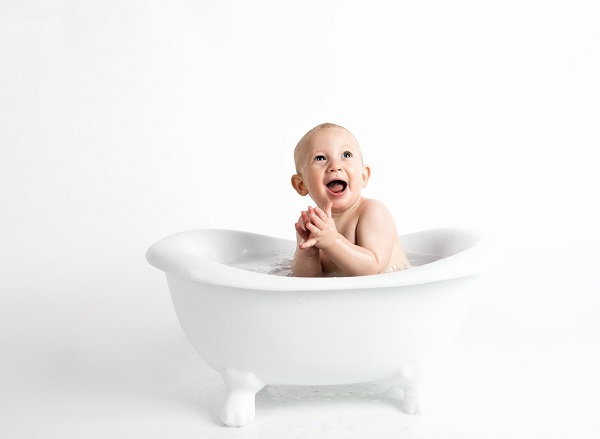







Leave a Reply